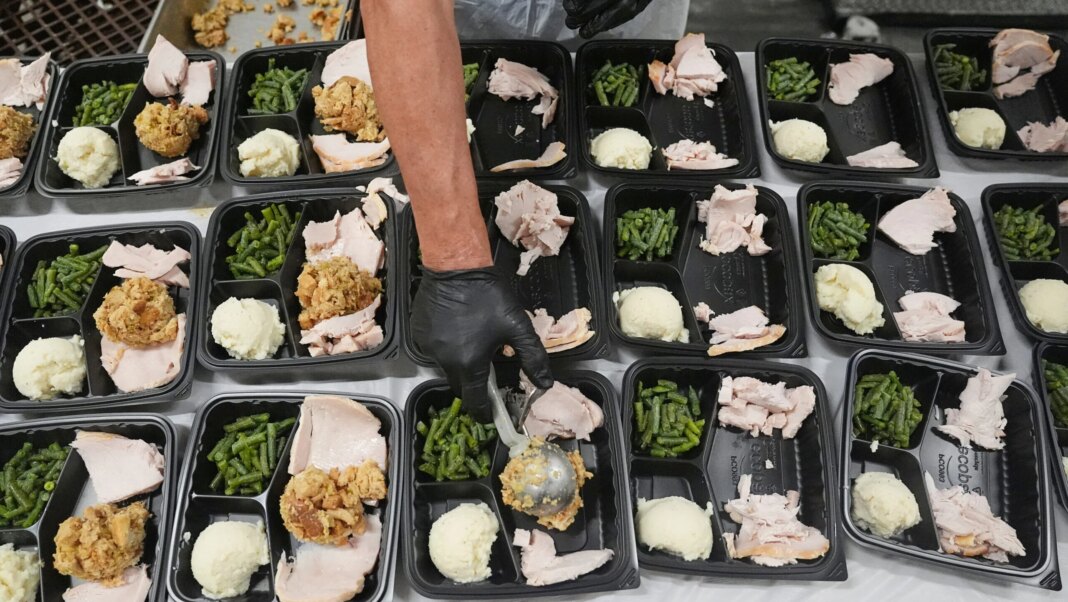Federal Judges Ruling on SNAP Funding During Government Shutdown
On a pivotal Friday, two federal judges issued rulings that require the Trump administration to continue funding the Supplemental Nutrition Assistance Program (SNAP), one of the nation’s largest food assistance programs, utilizing available contingency funds amidst the ongoing government shutdown. These decisions arrived just as the U.S. Department of Agriculture (USDA) planned to freeze SNAP payments, citing an inability to sustain the program’s funding.
The Impact of the Shutdown on SNAP
SNAP serves approximately 41 million Americans, or about 1 in 8 citizens, making it a critical component of the country’s social safety net. The announcement in October that the program could face a suspension due to the government shutdown produced considerable alarm among states, food banks, and those reliant on SNAP benefits. Many started exploring emergency measures to ensure food access remained available to those in need.
The program costs around $8 billion monthly, and news of potential interruptions in benefits stirred fears among recipients, forcing states into proactive stances, with some pledging to utilize state funds to maintain food assistance services.
Legal Challenge and Rulings
In a striking turn of events, Democratic attorneys general from 25 states and the District of Columbia filed a legal challenge against the proposed cessation of SNAP benefits. They asserted that the federal administration had an obligation to continue funding within their jurisdictions, emphasizing the moral and legal imperatives to assist those dependent on the program.
The administration insisted it could not legally employ a contingency fund of about $5 billion for SNAP, contradicting earlier assessments from the USDA, which had indicated that access to these funds was possible. In sharp contrast, the challenging states argued that not only was the use of these funds permissible, it was essential, citing a larger $23 billion fund available for SNAP purposes.
The Judges’ Perspectives
In the courtroom, U.S. District Judge Indira Talwani in Massachusetts voiced skepticism towards the government’s assertions, indicating that halting SNAP benefits wasn’t an appropriate response to funding challenges. Talwani emphasized that there exist structured methods to responsibly address budget shortfalls, such as adjusting benefits rather than ceasing them outright. She suggested that her judicial interpretation aligns with Congress’s intent regarding funding protocols during lapses.
Talwani’s ruling encompassed a nationwide application, although such broad injunctions could test existing limitations set by the U.S. Supreme Court concerning nationwide rulings. The complexity intensified with the judges demanding updates on funding solutions by the following Monday.
Reactions from Government Officials
At a news conference, Agriculture Secretary Brooke Rollins publicly condemned the situation, alleging that a failure on the part of Senate Democrats to expedite funding resolutions constituted a “disgusting dereliction of duty.” Rollins contended that the contingency funds would not suffice for extended SNAP needs, further complicating the government’s ability to maintain program operations without Congressional action.
Despite bipartisan attempts in Congress to secure continued funding for SNAP during the shutdown, these efforts fell flat, leaving states, food banks, and SNAP beneficiaries grappling with uncertainty.
Community Preparations and Responses
In anticipation of possible service disruptions, many states took proactive measures, expediting funding for local food banks and exploring alternative methods for loading benefits onto the SNAP debit cards used by recipients. Advocates voiced their anxieties, suggesting that a halt in food aid could force individuals and families into dire circumstances, making impossible choices between purchasing groceries and meeting other financial obligations.
As various stakeholders in the community brace for implications stemming from the court’s ruling, the future of SNAP funding amid the ongoing government shutdown remains a pivotal issue drawing national attention.



